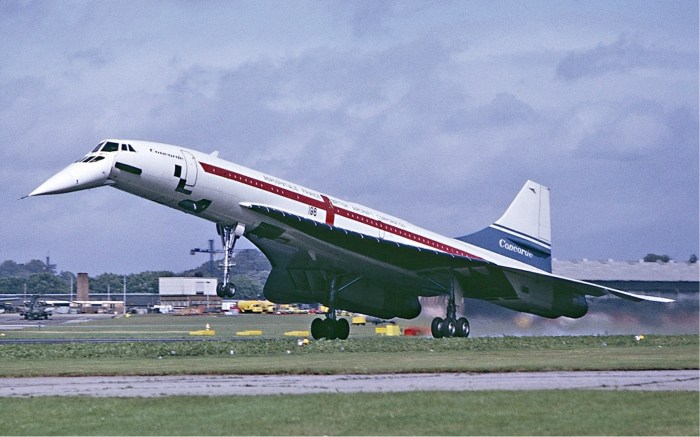Concord Recalled: A small town in Massachusetts, Concord holds a monumental place in American history. It’s where the first shots of the Revolutionary War were fired, a pivotal moment that shaped the nation’s destiny. But Concord is more than just a battleground; it’s a vibrant cultural hub, a haven for writers and artists, and a place where history continues to resonate in every corner.
From the iconic North Bridge, where the first shots rang out, to the literary legacy of authors like Thoreau and Emerson, Concord offers a glimpse into the heart of American identity. Its story is one of courage, resilience, and the enduring power of ideas.
Concord: Concord Recalled





Concord, Massachusetts, a quaint town steeped in history, holds a prominent place in the annals of the American Revolution. It was here, on the fateful morning of April 19, 1775, that the first shots of the Revolutionary War were fired, igniting a struggle for independence that would forever shape the course of American history.
The Battle of Lexington and Concord
The Battle of Lexington and Concord, a pivotal event in the American Revolution, unfolded in a series of skirmishes that began in Lexington and culminated in Concord. The British Army, under the command of Lieutenant Colonel Francis Smith, set out from Boston with the objective of seizing military supplies stockpiled by the American militia in Concord.The British troops encountered a small contingent of American militia in Lexington, where the first shots were exchanged.
The outnumbered militia retreated, but the British continued their march towards Concord. Upon reaching Concord, the British discovered that the militia had already removed or destroyed most of the supplies. The British soldiers, however, faced a fierce resistance from the American militia, who had gathered in large numbers.
Key Figures and Their Roles
- Paul Revere, a silversmith and patriot, famously rode through the night to warn the American militia of the British advance. His ride became a symbol of the American spirit of resistance.
- William Dawes, a fellow patriot, accompanied Revere on his ride to warn the militia.
- Samuel Prescott, a physician and militia member, joined Revere and Dawes on their ride and played a crucial role in alerting the militia in Concord.
- John Parker, the captain of the Lexington militia, led his men in the initial confrontation with the British troops.
- Isaac Davis, a member of the Lexington militia, was the first American casualty of the battle.
- James Barrett, the captain of the Concord militia, led his men in the defense of their town against the British.
- Major John Buttrick, a veteran of the French and Indian War, commanded the militia forces in Concord and played a key role in organizing the defense.
Impact of the Battle on the American Revolution
The Battle of Lexington and Concord, though seemingly a minor engagement, had a profound impact on the course of the American Revolution. It marked the beginning of the armed conflict between the American colonists and Great Britain. The British defeat at Concord demonstrated the determination and resilience of the American militia, inspiring further resistance throughout the colonies.The battle also served as a rallying cry for the colonists, uniting them against the British Crown.
The events at Lexington and Concord galvanized public opinion in favor of independence, paving the way for the Declaration of Independence in 1776.
Concord: Concord Recalled





Concord, Massachusetts, is a town steeped in history, particularly its pivotal role in the American Revolution. The town is home to several iconic landmarks that commemorate the events of April 19, 1775, known as the “Shot Heard Round the World.” These landmarks offer visitors a tangible connection to the events that shaped the nation.
Places and Landmarks
The Battle of Lexington and Concord, the first major engagement of the American Revolutionary War, unfolded across several locations in Concord. These landmarks serve as poignant reminders of the bravery and sacrifice of those who fought for independence.
Key Landmarks
| Landmark | Historical Significance | Visitor Information |
|---|---|---|
| North Bridge | The site of the first shots fired in the Battle of Lexington and Concord. The “shot heard round the world” is believed to have been fired here. | Open to the public year-round. A walking path leads to the bridge and offers interpretive signage. |
| Old North Bridge | A historic bridge spanning the Concord River, located near the site of the first shots fired. The bridge is now a popular tourist destination and a symbol of American independence. | Open to the public year-round. The bridge is a popular spot for photography and reflection. |
| Minute Man Statue | A bronze statue commemorating the Minutemen, the colonial militia who fought in the Battle of Lexington and Concord. The statue stands at the intersection of Lexington Road and Battle Road, a site of intense fighting. | Open to the public year-round. The statue is a popular spot for photography and reflection. |
Concord: Concord Recalled





Concord, Massachusetts, a town steeped in history and renowned for its role in the American Revolution, continues to thrive as a vibrant and dynamic community in the 21st century. While its past remains a source of pride and inspiration, Concord has successfully adapted to the changing tides of time, maintaining its unique character while embracing contemporary trends and challenges.
Modern-Day Demographics and Population
Concord’s population has steadily grown over the past few decades, reaching approximately 18,000 residents in 2020. The town boasts a diverse demographic profile, reflecting its appeal to a wide range of individuals and families. The median age is 45.5 years, with a substantial number of young professionals and families with children, contributing to a thriving and active community.
Concord’s population is predominantly white, with a growing diversity in recent years, encompassing individuals from various ethnic backgrounds and nationalities.
Economic and Cultural Significance
Concord’s economy is characterized by a blend of traditional industries and emerging sectors. The town is home to a significant number of small businesses, ranging from local shops and restaurants to technology startups and professional services firms. The presence of major corporations like Bose Corporation, a leading audio equipment manufacturer, and a robust technology sector, further enhances the town’s economic dynamism.
Beyond its economic significance, Concord is a renowned cultural hub, drawing visitors and residents alike to its numerous attractions. The town’s literary heritage, particularly its association with renowned authors like Henry David Thoreau and Ralph Waldo Emerson, continues to inspire writers and thinkers today.
Concord’s vibrant arts scene is further enriched by its numerous art galleries, theaters, and music venues, offering a diverse range of cultural experiences.
Concord, a name that evokes memories of harmony and agreement, might also bring to mind the elegant hotel concord torino , a beacon of hospitality in the heart of Turin. The hotel’s name, echoing the sense of unity and shared experience, perfectly encapsulates the essence of a concord recalled.
Attractions and Heritage
Concord’s rich history and cultural heritage are reflected in its numerous attractions, drawing visitors from across the globe.
- The Concord Museum:This museum houses a vast collection of artifacts and exhibits related to the town’s history, including the American Revolution, the Transcendentalist movement, and the lives of prominent figures like Thoreau and Emerson.
- The Old North Bridge:This iconic landmark played a pivotal role in the Battles of Lexington and Concord, marking the start of the American Revolutionary War. Visitors can walk across the bridge, immersing themselves in the historical significance of this site.
- The Wayside:This historic house was once home to several prominent American authors, including Louisa May Alcott, Nathaniel Hawthorne, and Margaret Fuller. Visitors can explore the house and its gardens, gaining insights into the lives and works of these literary giants.
- The Walden Pond:Made famous by Henry David Thoreau’s book “Walden,” this serene pond offers visitors a chance to experience nature’s beauty and reflect on Thoreau’s philosophy of simple living and self-reliance.
Concord’s vibrant art scene is further enriched by its numerous art galleries, theaters, and music venues. The Concord Art Associationis a prominent institution, showcasing contemporary and traditional art from local and regional artists. The Concord Players, a community theater group, presents a wide range of theatrical productions throughout the year.
The Concord Orchestra, a renowned symphony orchestra, offers a diverse repertoire of classical music performances.
Concord: Concord Recalled





The name “Concord” evokes images of historical significance, peaceful coexistence, and a strong sense of community. While the town of Concord, Massachusetts, is perhaps the most famous, the name is shared by several other locations across the United States. These places, though geographically distinct, share a common thread in their history and cultural associations, often reflecting the ideals and aspirations of their respective communities.
The Significance of the Name “Concord”
The name “Concord” originates from the Latin word “concordia,” meaning “harmony” or “agreement.” This name was chosen for many towns and cities throughout the United States during the colonial period and beyond, reflecting a desire for peace, unity, and cooperation.
The name carries significant historical and cultural associations, particularly in the context of American history.
- Concord, Massachusetts:This town is synonymous with the start of the American Revolution. The Battle of Lexington and Concord, fought on April 19, 1775, marked the first major confrontation between British forces and American colonists, sparking the revolutionary war that ultimately led to the establishment of the United States.
- Concord, New Hampshire:Founded in 1725, Concord, New Hampshire, is the state capital and is known for its historical significance, as well as its beautiful natural scenery. The city was named after the town in Massachusetts, reflecting a shared aspiration for peace and unity among the early colonists.
- Concord, California:Located in the San Francisco Bay Area, Concord, California, is a bustling city with a rich history and diverse cultural heritage. It was founded in 1869, during a period of rapid westward expansion, and was named after the town in Massachusetts, symbolizing the ideals of harmony and progress that were prevalent at the time.
The Impact of the Battle of Lexington and Concord
The Battle of Lexington and Concord played a pivotal role in shaping American identity and national consciousness. It served as a catalyst for the American Revolution, uniting colonists across the thirteen colonies in their struggle for independence from British rule.
The battle also served as a powerful symbol of American resistance against tyranny and oppression, inspiring generations of Americans to fight for freedom and democracy.
“The shot heard round the world”
This famous phrase, coined by Ralph Waldo Emerson, encapsulates the profound impact of the Battle of Lexington and Concord on the course of American history. The battle served as a turning point in the relationship between the American colonies and Great Britain, leading to the declaration of independence and the birth of a new nation.
Concord: In Popular Culture

Concord, Massachusetts, a town steeped in history and literary legacy, has transcended its physical boundaries to become a source of inspiration for artists and storytellers across various mediums. From the pages of classic American literature to the silver screen, Concord has left an indelible mark on popular culture, captivating audiences with its rich historical backdrop and enduring themes.
Concord in Literature
Concord’s literary legacy is deeply intertwined with its history. The town served as the backdrop for several notable works of American literature, including those by transcendentalist writers Ralph Waldo Emerson and Henry David Thoreau. These writers, who were deeply influenced by the town’s intellectual and spiritual atmosphere, immortalized Concord in their writings, shaping its image as a place of contemplation, intellectual ferment, and social reform.
- Waldenby Henry David Thoreau: This seminal work of American literature is a meditation on nature, simplicity, and self-reliance. Thoreau’s cabin on Walden Pond, located in Concord, became a symbol of transcendentalist ideals and a place of pilgrimage for nature enthusiasts and writers alike.
- The Scarlet Letterby Nathaniel Hawthorne: While not set directly in Concord, this classic novel draws heavily on the town’s Puritan past. Hawthorne, a native of Salem, Massachusetts, was deeply influenced by the history of the Salem witch trials and the strict religious doctrines of the Puritan era.
Concord, with its strong historical ties to these themes, served as a symbolic backdrop for the novel.
- Little Womenby Louisa May Alcott: Though not explicitly set in Concord, this beloved novel is set in a fictional town called “Plumfield,” which is heavily inspired by Concord and its surrounding areas. Alcott, who lived in Concord for a significant portion of her life, drew inspiration from the town’s literary community and its emphasis on education and personal growth.
Concord in Film and Television, Concord recalled
Concord’s historical significance and picturesque landscapes have made it a popular setting for film and television productions. From historical dramas to contemporary comedies, Concord has served as a backdrop for a diverse range of stories, capturing the town’s timeless charm and its connection to American history and culture.
- The Great Gatsby(2013): Though the novel is set on Long Island, the film adaptation features scenes shot in Concord, specifically at the historic Walden Pond. The choice of location reflects the film’s attempt to capture the spirit of the American Dream and the enduring themes of love, loss, and social class.
- The Cider House Rules(1999): This film, based on the novel by John Irving, features scenes set in a fictional town called “St. Cloud,” which is inspired by Concord and its surrounding areas. The film captures the town’s rural charm and its connection to the themes of family, love, and personal growth.
- The Patriot(2000): While not explicitly set in Concord, this historical drama features scenes set in Massachusetts during the Revolutionary War. The film’s depiction of the American Revolution draws on the town’s rich historical legacy and its role in the fight for independence.
Concord: Concord Recalled





Concord, Massachusetts, transcends its historical significance as the site of the first shots of the American Revolution. It has also become a cultural and literary hub, deeply intertwined with the development of American literature. This town, nestled in the heart of New England, has served as a muse and a sanctuary for generations of writers and artists, fostering a vibrant artistic community.
The Legacy of Concord’s Writers
The legacy of Concord’s writers is deeply interwoven with the town’s history and its evolution as a cultural center. The transcendentalist movement, a philosophical and literary movement that emphasized individualism, intuition, and the inherent goodness of humanity, found fertile ground in Concord.
This movement, championed by writers like Ralph Waldo Emerson and Henry David Thoreau, had a profound impact on American literature, influencing subsequent generations of writers.
- Ralph Waldo Emerson, a leading figure of transcendentalism, was a prolific writer, poet, and lecturer. His essay “Self-Reliance” is a cornerstone of American individualism and continues to resonate with readers today. He also wrote extensively on nature, spirituality, and the importance of individual experience.
- Henry David Thoreau, a close friend of Emerson, was a writer, naturalist, and philosopher. His masterpiece, -Walden*, a reflection on simple living and communion with nature, remains a classic of American literature. Thoreau’s writings also explored themes of civil disobedience and the importance of individual conscience, as exemplified in his essay “Civil Disobedience.”
- Nathaniel Hawthorne, another prominent Concord resident, was a novelist and short story writer known for his exploration of Puritan themes and the dark side of human nature. His novels, such as -The Scarlet Letter* and -The House of the Seven Gables*, delve into the complexities of morality, sin, and redemption.
- Louisa May Alcott, a celebrated author of children’s literature, resided in Concord and drew inspiration from its surroundings. Her most famous work, -Little Women*, a coming-of-age story set during the Civil War, continues to capture the hearts of readers worldwide.
Outcome Summary
Concord, Massachusetts, is a town that embodies the spirit of American history and culture. It’s a place where the past comes alive, where the echoes of revolution still resonate, and where the pursuit of knowledge and creativity continues to flourish.
Whether you’re a history buff, a literary enthusiast, or simply seeking a glimpse into the soul of America, Concord offers a journey through time that’s both enlightening and inspiring.
